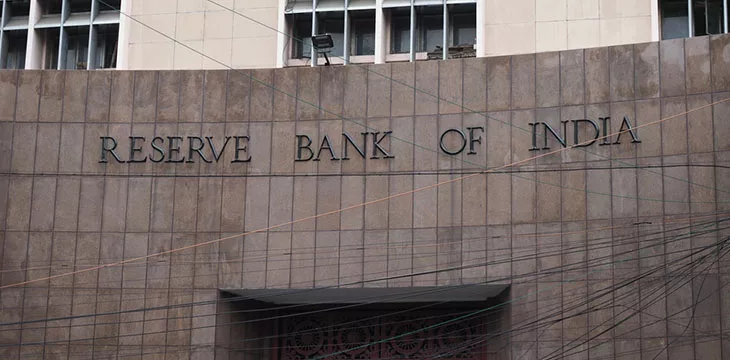|
Getting your Trinity Audio player ready...
|
The Reserve Bank of India (RBI) is reportedly proceeding with a wholesale central bank digital currency (CBDC) pilot to explore its functionality in the call money market.
In a report by Money Control, two individuals with knowledge of RBI’s plans confirmed the central bank’s decision to launch a new round of testing. In November 2022, the RBI began a wholesale CBDC pilot to settle government bonds, but after two months, enthusiasm for the use case had waned to new lows.
To trigger interest for wholesale CBDCs, the Indian central bank is proceeding with call money—a short-term, interest-earning loan—allowing banks and other financial institutions to lend and borrow money to each other at market-determined rates. Although details are sparse, the RBI relies on the same commercial banks for its wholesale CBDC.
“We have started the wholesale CBDC pilot in the call money market and some deals have also taken place,” said one unnamed source.
Under the pilot, the RBI will test the viability of atomic settlements using blockchain plus the additional functionality of smart contracts for programmability. Participating banks may leverage the programmable function to ensure timely repayment of borrowed funds while benefiting from the possibility of tokenizing collateral.
Plans for using wholesale digital rupee in call money have been in the works since the start of 2023, with RBI’s executive director Ajay Kumar Choudhary hinting at a potential launch date in Q4.
“(It will be) very soon. Interbank borrowing in wholesale CBDC we are going to start this month itself. Either this month or next month,” said Choudhary at the G20 Summit in India last September. “We are testing it. Once we are ready, we will be able to start.”
RBI Governor Shaktikanta Das hinted at further wholesale CBDC pilots at the Global Fintech Fest 2023 but did not mention call money.
Around the world, wholesale CBDCs are picking up significant steam, driven by the potential for cross-border payments and the possibilities of tokenization. Brazil, Korea, and the European Union (EU) form part of a growing number of jurisdictions actively exploring the use of wholesale CBDCs to improve the state of payments.
India’s retail CBDC leaves others trailing
Given its successes since launch, India’s retail CBDC has received the bulk of plaudits, onboarding over 50,000 users in the first two months. An expansion to new cities, improved functionalities, and increased merchant figures has seen daily transactions surge to 15,000, but the RBI has its eyes set on a million daily transactions.
The central bank has been experimenting with cross-border payments for its digital rupee, with the country’s Treasury Minister expecting faster adoption metrics for retail CBDCs over the wholesale iteration. Despite the early successes and future ambitions, the RBI says it will continue proceeding with a “slow-and-steady” approach to avoid the pitfalls of a botched digital rupee launch.
To learn more about central bank digital currencies and some of the design decisions that need to be considered when creating and launching it, read nChain’s CBDC playbook.
Watch: Utilizing sovereign nodes for CBDCs & micropayments

 02-18-2026
02-18-2026 




